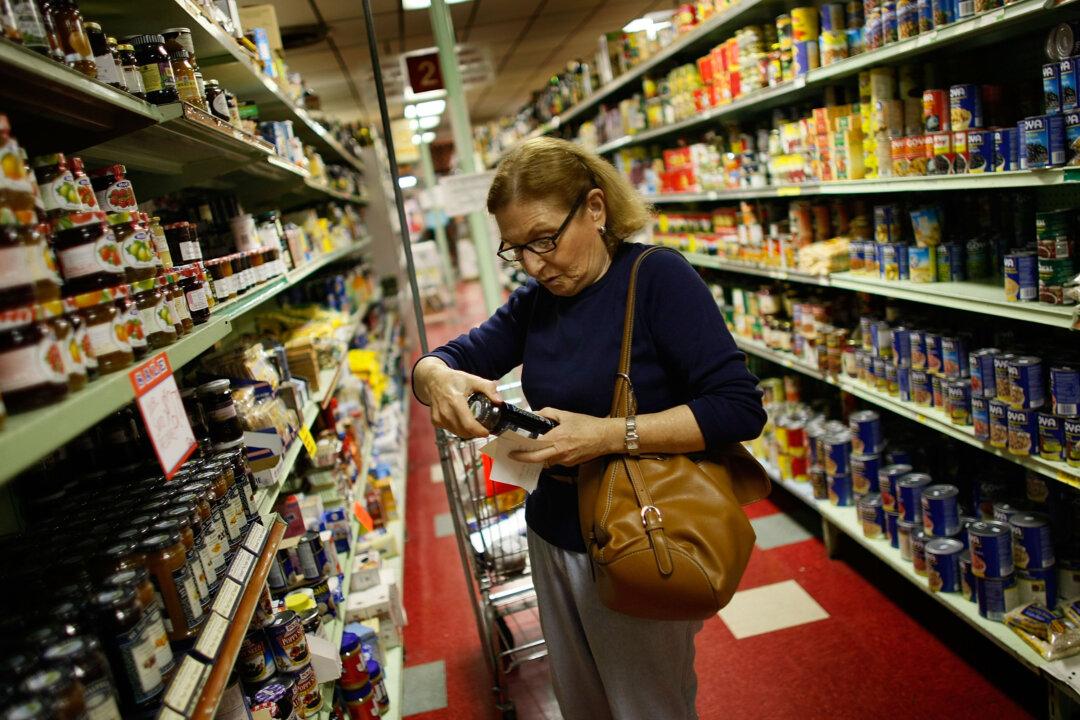In the never-ending quest to woo the health conscious consumer, food manufacturers are serving up “natural” versions of favorite products. But several lawsuits accuse companies of making an empty promise.
In July, Naked Juice Co., owned by PepsiCo, agreed to pay $9 million to settle a class-action suit for its use of “all-natural” product labels. In Palm Beach County, Florida, an elementary school teacher is suing Pepperidge Farm for $5 million in a similar accusation of false advertising of “natural” Cheddar Goldfish crackers.
Kashi Cereals, Campbell’s Soup, Skinnygirl Margarita, and other brands have faced litigation in what consumers say is a twisted interpretation of a potent word.
“You wouldn’t say this is a natural apple, but you do have to say it’s a natural granola bar because we know a lot of granola bars aren’t natural anymore,” said Alexis Baden-Mayer, political director of the Organic Consumer Association.
“For processed and multi-ingredient products, that’s the selling point. I would assume that anything that’s called natural is probably hiding something, and that’s why they have to use this natural label. It’s all marketing.”
The U.S. Food and Drug Administration (FDA) offers a short description of what natural entails: no artificial or synthetic ingredients. Food manufacturers understand that a few chemicals and colors are strictly forbidden on a “natural” label, but the classification of some chemical processing and additives—such as genetically modified organisms (GMOs)—is not so clear.
“No consumer would think that a GMO that has the BT toxin or was genetically engineered with soil bacteria so that it can withstand an herbicide—no consumer would think that’s natural. But the FDA refuses to acknowledge a difference between normal food and genetically engineered food,” said Baden-Mayer.
Amidst growing litigation, companies and industry groups have pressured FDA to end the confusion. The overworked agency stated that while it intends to write a better definition someday, it’s a concern low on a long list.
In 2008, FDA’s Geraldine June told Food Navigator USA that there was not enough evidence that consumers are being misled by “natural.”
“If there was, then we would definitely raise it as a priority,” she said.
A verdict from another “natural” lawsuit compels FDA to consider the issue again. On June 19, in a case against the “all-natural” claim of Mission brand tortilla chips, the court issued a tentative ruling due to the “gaping hole in the current regulatory landscape for ‘natural’ claims and GMOs.”
According to Judge Yvonne Gonzalez Rogers, since FDA “has not addressed, even informally, the question of whether foods containing GMO or bioengineered ingredients may be labeled ‘natural’ or ‘all natural,’” the court offered the agency six months to exercise its “interpretive authority” before issuing a final ruling.
Nailing Down Natural
FDA says natural is “difficult to define” from a food science perspective, “because the food has probably been processed and is no longer the product of the earth.” In other words, any human intervention—cooking, canning, or fermentation—interferes on some level with the purity of nature’s design.
While regulators are hesitant to draw a line between natural and synthetic, what is clear is that “natural” is good for business.
According to a 2012 “Cereal Crimes” report from the Cornucopia Institute (CI), natural marketing has seen tremendous growth in recent years. “Natural” products are often placed next to organics in the grocery aisle, drawing the attention of health-minded consumers without the cost and regulation of an organic label.
Natural marketing has proved so successful that since 2008 the demand for organic grain has fallen steadily for the first time in decades, forcing many formerly organic farmers to go conventional.
According to CI director Mark Kastel, the profound difference is that organic has a very established standard that is tightly regulated, while natural essentially means nothing.
“The definition for ‘natural’ is what the sales marketing manager decides it is on any given day,” he said.
GMO proponents insist that bioengineering is no different than plant hybridization techniques that have existed for thousands of years. But Kastel disagrees.
“GMOs by very definition are not natural, because they’re talking about genetically manipulating a plant, or conceivably an animal, that becomes an organism that’s never existed on this planet before. That doesn’t seem very natural to me.”
Surveys find that most Americans agree. Over 60 percent of consumers expect “natural” foods to be free of pesticides and genetically engineered ingredients. However, tests show otherwise.
CI sent several cereal brands to a laboratory to determine GMO content. Organic cereals came back GMO-free, while products labeled “natural,” and even those enrolled in the “Non-GMO Project” contained high levels of genetically engineered ingredients.
“We found that Kashi brand—which is the product leader in “natural” cereal—and it’s owned by Kellogg’s but you won’t see their name on the label and that’s part of the masquerade—we found genetically engineered ingredients in their products. They were charging more for them than for certified organic, which are GMO free,” said Kastel.
Kastel says that while big food manufacturers have repeatedly tried to weaken organic standards, “the law congress passed is pretty good. It gives us some tools to resist.”
“I buy as much organic as I can, because I know it means truly natural and the exceptions are very carefully scrutinized,” he said.






